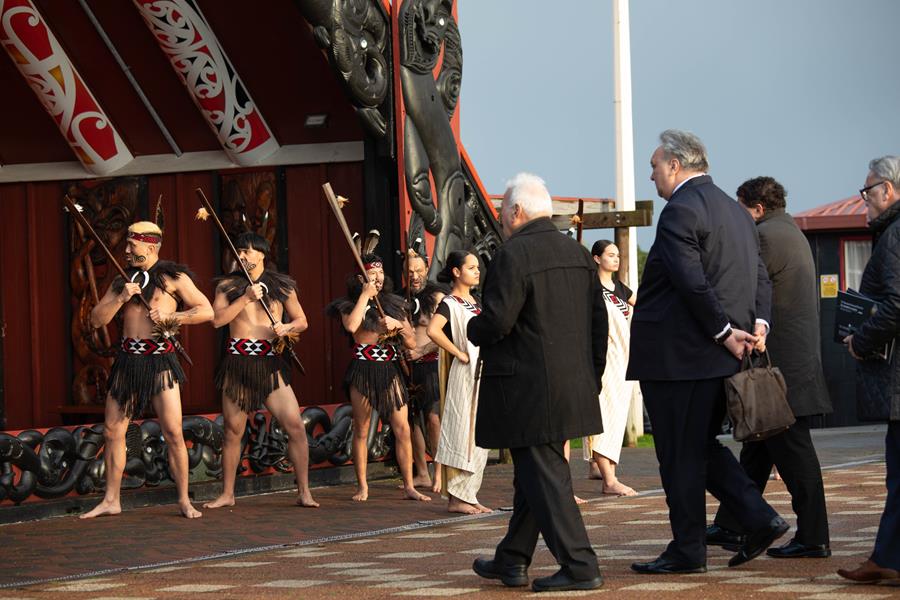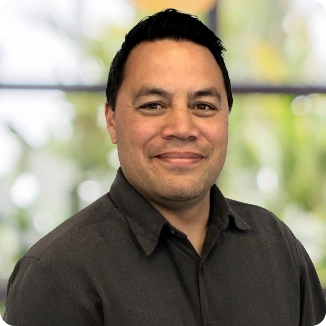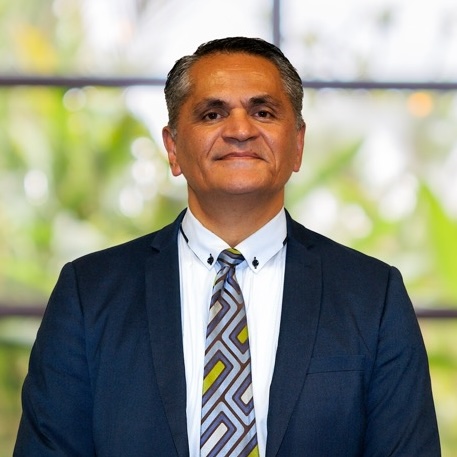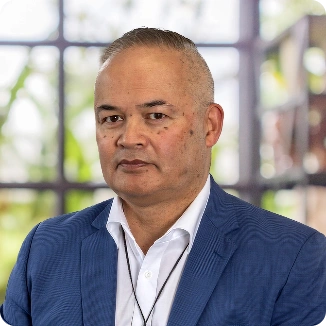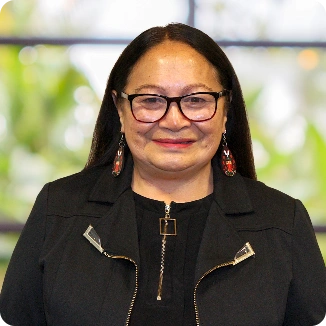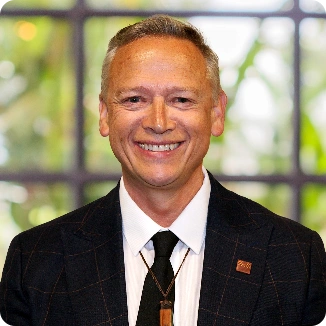The talking is done, the negotiations are done, the European and United Kingdom Free Trade Agreements have been signed…but now the hard mahi really begins.
That was the overwhelming message across yesterday’s Te Taumata Regional Trade Hui at Ngāti Whātua Ōrākei Marae in Tāmaki Makaurau.
Attended by Māori businesses, global ambassadors, Government representatives and dozens of other organisations, yesterday’s Regional Trade Hui is the seventh in a series of hui that have been held across the motu in recent years.
But while the focus for previous hui has been on providing Māori input to those developing free trade agreements, yesterday’s priority was about making the new trade opportunities a reality.
Te Taumata Chair Chris Karamea Insley says the opportunity cost of not implementing the Free Trade Agreements effectively is in the billions of dollars.
“A huge number of people have worked tirelessly to get these FTAs across the line – we held them accountable for getting the deals done, but now the responsibility is on us to leverage them for maximum outcomes for whānau.
“We heard directly from the EU Ambassador to New Zealand, along with the Chair of the European Parliament’s Foreign Affairs Committee, about how ground-breaking the EU FTA is.
“It is the first EU trade agreement that incorporates a specific indigenous chapter, and it puts us on a level playing field with our global competitors.”
Te Taumata will be rolling out a series of news stories over the coming days and weeks relating to the different speakers at yesterday’s Regional Trade Hui. Stay up to date with the latest news and information here, and check out two of the other themes – Creativity and Innovation, and Climate Change – below.
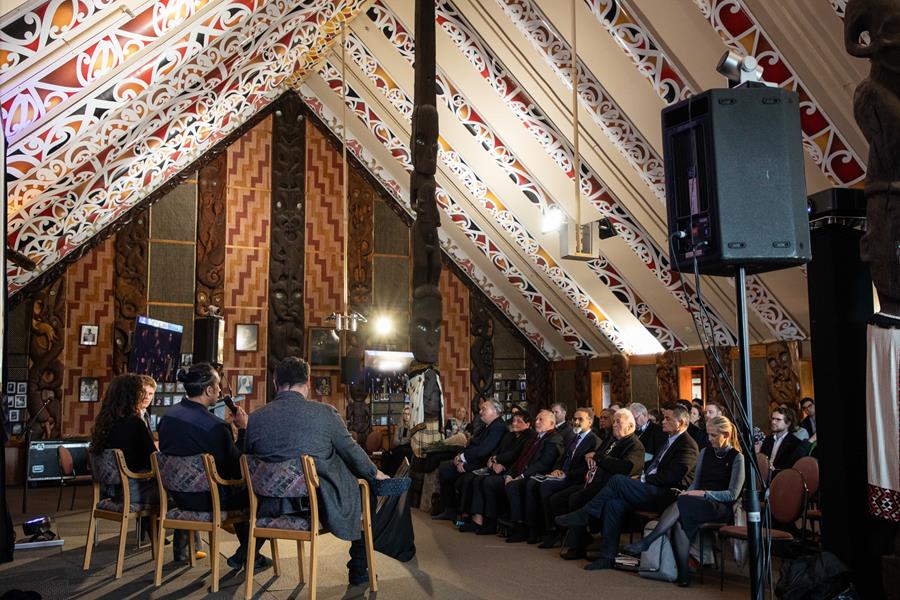
Creativity and Innovation – critical success factors
The day started with a powerful introduction to Ngāti Whātua Ōrākei and its innovative whānau developments, setting the perfect scene for the impact Māori can make at home and on the world stage.
“The world wants to embrace Māori brands and work with Māori businesses – coming out of the pandemic, global consumers want to connect with brands that reflect their values,” says Joe Harawira, Managing Director of Wai Manuka…read more here.
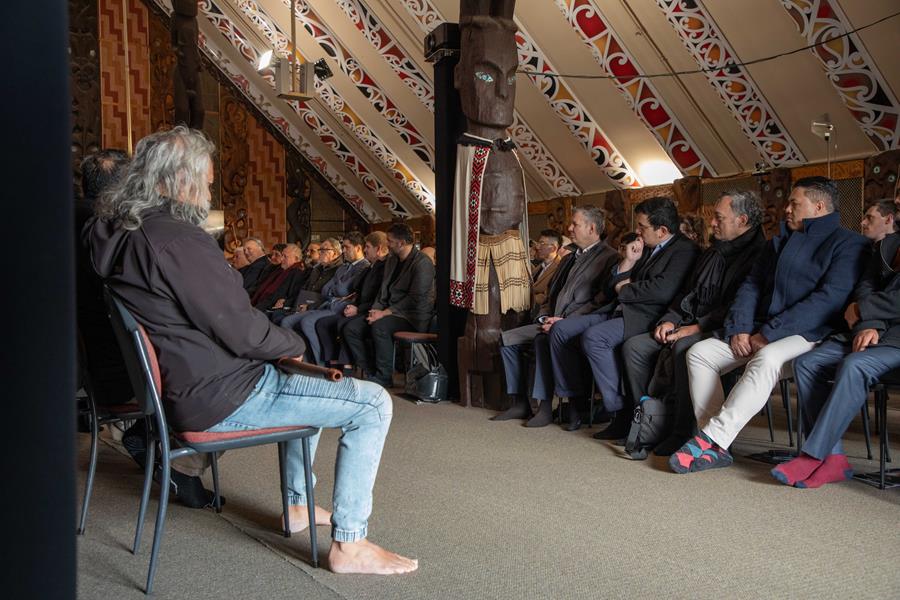
Climate Change – our new Trade challenge
Capability is not the only challenge on the table, with the impacts of climate change already a clear and present reality.
Charlotte Frater is MFAT’s Chief Negotiator for the Agreement on Climate Change Trade and Sustainability (ACCTS) – and effort that is roundly supported by Te Taumata…read more here.



